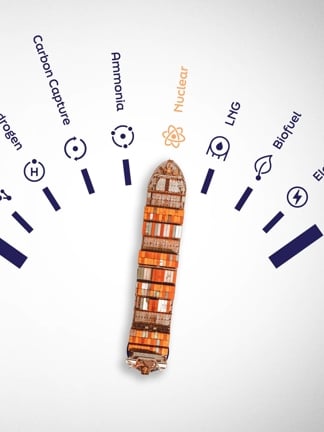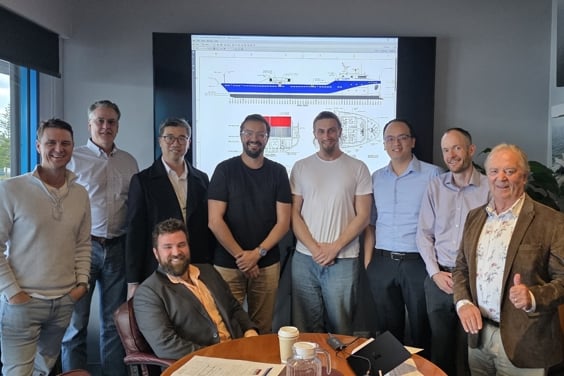A research report from CORE POWER, NorthStandard, and Lloyd’s Register (LR) proposes a framework to support the UK in developing advanced, safe, small nuclear reactors as a reliable and scalable zero-emission maritime power source. The UK is well-positioned to lead the safe development and deployment of these new nuclear power systems for commercial ships and Floating Nuclear Power Plants (FNPPs).
About the Report
Technology company CORE POWER, global marine insurer NorthStandard, and maritime professional services provider LR have jointly published Advanced Maritime Nuclear: A Unique Opportunity for the UK. This paper outlines a policy framework for the UK Government to support the deployment of advanced small nuclear reactors on commercial ships and FNPPs.
The report covers:
- Policy Recommendations: The report recommends that the Department for Transport should include nuclear-powered shipping and FNPPs in an updated Clean Maritime Plan (CMP) and long-term nuclear strategy.
- Current Challenges: Global shipping relies on fossil fuels for nearly 99% of its energy consumption. The International Maritime Organization (IMO) aims for net-zero greenhouse gas (GHG) emissions by around 2050, but alternative fuel options face significant challenges.
- UK's Leadership: Lord Mountevans highlights the UK's potential to lead in nuclear-powered shipping, leveraging decades of experience with small reactors for the Royal Navy to decarbonise maritime transport, create jobs, and strengthen Britain's position as a clean energy world power.
The UK pledged to triple nuclear energy generation capacity at COP 28. The Civil Nuclear Roadmap to 2050 envisions nuclear technologies, from Advanced Small Modular Reactors (A-SMRs) to large-scale nuclear plants, as part of the UK’s energy mix. These advanced nuclear technologies offer dramatic energy efficiency gains for global shipping.
















